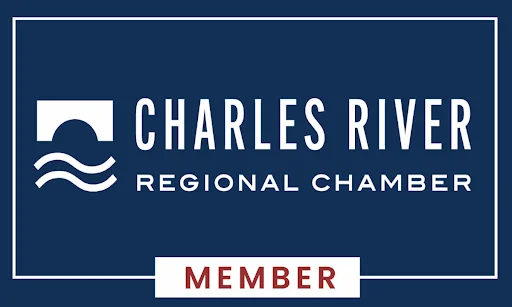Clinically Reviewed by Dr. Kate Smith
What Is Eye Movement Desensitization and Reprocessing (EMDR)?
Eye Movement Desensitization and Reprocessing is an essential part of the treatment programs at Greater Boston Behavioral Health. This evidence-based therapy is particularly effective for addressing trauma and is used to treat conditions such as post-traumatic stress disorder (PTSD), anxiety, depression, and substance use disorders. Our specialized EMDR program helps clients process traumatic memories by recalling distressing events while focusing on external stimuli, such as guided eye movements. This dual attention facilitates the reprocessing of traumatic memories, allowing individuals to integrate their experiences more adaptively.
Through EMDR, clients learn to identify and challenge negative beliefs tied to their trauma, fostering healthier coping mechanisms and emotional resilience. By incorporating EMDR into our treatment plans, we empower individuals to work through past experiences, promoting long-term recovery and improved mental health.
Trauma Still Affecting You?
EMDR is a powerful tool that helps the brain heal from painful memories.
Let’s talk about how this therapy works — and whether it’s right for you.
Benefits of Eye Movement Desensitization and Reprocessing
EMDR offers numerous advantages for individuals facing a range of mental health challenges:
- Trauma Processing: Helps clients effectively process and integrate traumatic memories, alleviating emotional distress and promoting healing.
- Emotional Regulation: Assists clients in managing their emotions more effectively by addressing underlying issues tied to traumatic events, especially beneficial for individuals experiencing anxiety or depression.
- Reduction of Anxiety: Reduces anxiety by enabling individuals to confront distressing thoughts and memories in a controlled environment, fostering resilience when approaching triggers.
- Increased Self-Efficacy: Builds confidence in clients’ abilities to handle stress and make positive life changes as they process traumatic experiences.
EMDR provides a structured approach to addressing both the emotional and psychological aspects of recovery, empowering individuals to achieve lasting mental well-being.
How Does Eye Movement Desensitization and Reprocessing (EMDR) Work?
EMDR therapy helps people heal from emotional wounds by gently reprocessing painful memories. It’s a powerful way to find relief, build resilience, and move forward with hope.
Getting to Know You
We gently explore your story, build trust, and create a safe space to begin your healing journey together.
Finding What Needs Healing
Together, we identify painful memories and emotions that may be holding you back from peace and growth.
Guided Healing
Through gentle eye movements or tapping, your mind safely reprocesses trauma, allowing space for true healing.
Building New Strength
We help you nurture positive beliefs about yourself, turning wounds into wisdom and hope for the future.
You deserve to heal, and you don’t have to do it alone. Let Greater Boston Behavioral Health walk beside you every step of the way.
📞 Reach Out Today and See What EMDR Can Do for YouEMDR Facts & Statistics
How Effective Is EMDR? – PTSD UK. www.ptsduk.org/how-effective-is-emdr/.
“EMDR Therapy Statistics: Trust the Evidence – April Lyons Psychotherapy Boulder, LPC.” April Lyons Psychotherapy Group, 31 Dec. 2019, www.aprillyonspsychotherapygroup.com/blog/emdr-therapy-statistics.
Flatot-Blin, Deborah, et al. “Clinical Efficiency and Acceptability of EMDR and MOSAIC Therapy for PTSD.” Healthcare, vol. 11, no. 15, Multidisciplinary Digital Publishing Institute, Aug. 2023, pp. 2226–26, https://doi.org/10.3390/healthcare11152226.
EMDR International Association. “About EMDR Therapy.” EMDR International Association, 2022, www.emdria.org/about-emdr-therapy/.
Finding EMDR Treatment near Me
The specialists at Greater Boston Behavioral Health provide EMDR treatment for individuals seeking help dealing with mental health issues in a supportive, affirming environment. Our goal is to help clients manage their symptoms and improve their overall well-being. To learn more about our EMDR services, please call us at (888)278-0716 or visit our location in Needham, MA.
- Greater Boston Behavioral Health: 322 Reservoir Street Needham, MA 02494
Accreditations You Can Trust
Trusted, Recognized, and Backed by Leading Organizations
These badges reflect our standing with respected local and national groups — including Psychology Today, Charles River Recovery, and the Massachusetts Department of Public Health. Click below to see what each badge means.
The Joint Commission
Considered the gold standard in healthcare quality, The Joint Commission evaluates programs on safety, ethics, and clinical excellence. Their seal means our treatment meets some of the most rigorous national standards in the field.
Massachusetts Department of Public Health
DPH approval confirms that our programs follow all state requirements for safety, staffing, licensing, and oversight. In simple terms: the state reviews our operations and verifies that we meet the standards needed to provide trustworthy care.
Psychology Today Verified
Being verified on Psychology Today shows that our clinicians are licensed, professionally credentialed, and approved by one of the most widely used mental health directories in the country.
Charles River Recovery Partnership
This partnership connects us with another respected Massachusetts treatment provider, allowing clients to move safely between levels of care and ensuring continuity, collaboration, and high-quality support.
National Quality Seal (Gold Emblem)
This represents our commitment to following recognized best practices in behavioral health. It signals that we go beyond the basics — focusing on safe, ethical, evidence-based care at every step.
Conditions We Treat with EMDR at Greater Boston Behavioral Health
Eye Movement Desensitization and Reprocessing (EMDR) is a key component of treatment at Greater Boston Behavioral Health, effectively addressing various mental health and trauma-related challenges. The conditions we treat using EMDR include:
- Trauma & PTSD: EMDR is particularly effective for trauma survivors, helping them process traumatic experiences, reshape their thoughts around these events, and reduce emotional distress while fostering resilience and recovery.
- Anxiety Disorders: EMDR helps individuals confront and reprocess distressing thoughts and memories, which can significantly reduce anxiety symptoms and improve overall emotional well-being.
- Depression: By addressing the underlying trauma and negative beliefs contributing to depression, EMDR assists clients in fostering healthier perspectives and improving their mood.
- Chronic Pain: EMDR assists clients in managing the emotional aspects of chronic pain by addressing trauma or stress that may exacerbate their physical symptoms, improving their overall quality of life.
- Obsessive-Compulsive Disorder (OCD): EMDR empowers clients to process the traumatic memories that may underlie their obsessive thoughts and compulsive behaviors, leading to a reduction in OCD symptoms.
The EMDR programs at Greater Boston Behavioral Health provide clients with effective tools to address these conditions by focusing on trauma resolution, enhancing emotional regulation, and promoting long-term well-being.
Treatment Programs with Eye Movement Desensitization and Reprocessing
At Greater Boston Behavioral Health, we incorporate EMDR into our treatment programs to help individuals struggling with trauma, anxiety, depression, and a range of other mental health conditions. EMDR focuses on processing traumatic memories and reshaping negative thought patterns, making it highly effective for various mental health challenges.
- Individual Therapy: Clients participate in one-on-one EMDR sessions with licensed therapists to process traumatic memories, reduce emotional distress, and develop healthier coping strategies to manage future stressors.
- Group Therapy: EMDR-based techniques are discussed and supported in a group setting, where clients can share their progress, learn from others, and explore how trauma resolution can impact their journey to mental well-being.
- Intensive Outpatient Program (IOP): Our IOP integrates EMDR into its structure, offering flexible trauma-focused care for clients balancing daily responsibilities. The program emphasizes trauma resolution and emotional regulation.
- Partial Hospitalization Program (PHP):
In our PHP, EMDR is a core component of daily treatment. Clients receive an intensive level of care through individual and group sessions, addressing trauma-related issues and helping stabilize mental health. - LGBTQ+ Program: Our specialized LGBTQ+ program offers an affirming space for clients to explore trauma and mental health challenges related to identity. EMDR techniques are adapted to address stressors unique to the LGBTQ+ community and foster healing.
- Aftercare Support: GBBH provides ongoing aftercare services, including EMDR-based support groups and continued trauma processing, to help clients maintain the progress they’ve made and manage challenges post-treatment.
By integrating EMDR into our treatment programs, GBBH helps individuals process traumatic experiences, reduce the emotional impact of past events, and build a strong foundation for long-term mental well-being.
EMDR Therapy Guided by Experienced Mental Health Clinicians
At Greater Boston Behavioral Health, EMDR therapy is provided in a supportive, trauma-informed mental health setting by experienced clinicians. Our team introduces EMDR thoughtfully and at a pace that feels safe, often integrating it with other evidence-based therapies to support healing from trauma, anxiety, and depression.
Clinical oversight is led by Celina Gaines, Clinical Supervisor, who brings nearly a decade of experience in mental health care and specialized training in ACT and trauma-focused EMDR—helping ensure care is ethical, supportive, and centered on emotional well-being.
You can meet our care team here to learn more about the professionals guiding EMDR therapy at GBBH.
Is EMDR Treatment Covered By My Insurance Provider?
To confirm your insurance coverage for EMDR at Greater Boston Behavioral Health, begin by reaching out to your insurance provider to inquire about the specifics of your plan. You can also check your coverage online or review your benefits handbook for detailed information. At GBBH, our team is here to help you navigate your insurance plan and determine which services are covered. We strive to make the process easy so you can focus on getting the care you need.
What Does the EMDR Admissions Process Entail?
At Greater Boston Behavioral Health, the admissions process for EMDR is designed to be smooth and supportive. It begins with an initial consultation where our team assesses your emotional and behavioral needs, reviews your mental health history, and explores your therapy goals. This evaluation allows us to determine if EMDR is the right fit for you and to create a personalized treatment plan tailored to your situation. Once the assessment is complete, our admissions team helps with the necessary paperwork, coordinates with your insurance provider, and answers any questions you may have.
FAQs About Our EMDR Therapy in Boston, Massachusetts
Eye Movement Desensitization and Reprocessing (EMDR) is a therapy that helps people process traumatic memories and reduce emotional distress.
EMDR is especially effective for people with PTSD, trauma, or painful memories. It can also help with anxiety and depression.
Treatment varies. Some people see results in a few sessions, while others need longer-term therapy.
A therapist typically guides you through recalling memories while using eye movements or tapping to help your brain reprocess them safely.
EMDR is used for PTSD, trauma, anxiety, phobias, and grief.
Yes. EMDR is conducted by trained therapists in a safe, supportive environment.
Yes. EMDR often works alongside CBT, DBT, or medication management.
Many continue with outpatient counseling or join support groups. GBBH helps integrate EMDR into long-term recovery.
Stuck in the past?
EMDR can help you process and move forward from trauma.
We’re here to explain the process and support your next step.
What Are the Costs of EMDR Services?
The cost of EMDR services at Greater Boston Behavioral Health varies depending on the type and frequency of care, including therapy sessions and medication management. For detailed pricing, we recommend contacting our admissions team. We collaborate with insurance providers and offer financial assistance to ensure you get the support you need. For detailed information, contact our admissions team. We work with insurance providers and offer financial assistance to help manage expenses and ensure you get the support you need.
Knowing your payment options is essential for making informed decisions about your EMDR treatment options. We suggest reviewing your insurance policy or calling us at (888)278-0716. At GBBH, our team is here to help verify your insurance coverage.
Live Sober
Live Connected
Greater Boston Behavioral Health
Mental Health Therapy Programs




